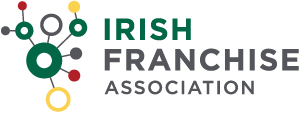Budget 2015 – what it means for small business
Declaring that Britain is the “comeback country”, Mr Osborne highlighted a reduction in the shortage of jobs and rise in living standards, and unveiled a number of ways he believes enterprise and growth will be assisted in the forthcoming year in his Budget yesterday. In case you missed anything important, we’ve put together the news that will affect SMEs and self-employed business people.
“Tax shouldn’t be taxing”
Entrepreneurs, freelancers and small businesses may be pleased at the demise of the annual tax return. Mr Osborne said that “people shouldn’t be working for the taxman” and said that by 2020 annual tax returns will be replaced by a new digital tax system will allow more than 50 million people process their tax online. His intention, he said, is for businesses to feel as if they are paying a “simple single business tax”.
“Businesses need low competitive taxes”
From 1st of April 2015, Corporation Tax for businesses making profits more than £300,000 will be reduced to 20%, from the current rate of 21%. This means multinational businesses’ corporation tax figures will now match that of those companied with profits less than £300,0000.
He also said companies that evade tax will face new penalties via new legislation; the so-called Google Tax is designed to discourage large companies evading paying tax using loopholes. “Let the message go out: this country’s tolerance for those who will not pay their fair share of taxes has come to an end.”
These tax measures are expected to raise £3.1bn over the next five years.
UK Trade and Investment
There will also be an increase to the UK trade and investment’s resources to double the support for British exporters in China. In a nutshell, this means activities in China will get almost double the funding of £15m in 2015-2016, with a number of sectors singled out to be targeted including advanced manufacturing, transport, financial services, healthcare and life sciences.
The “northern powerhouse”
A significant announcement made yesterday was the boost to the UK’s businesses based in the north, as Mr Osborne said he would be helping businesses in the region, including his promise to allow Greater Manchester to keep 100% of business rates growth from shops and restaurants. He noted that employment and jobs had grown faster in the north than they had in the south during 2014.
A “generous rate” for Annual Investment Allowance?
Chancellor caused concerns over the lack of clarity on the Annual Investment Allowance, which gives businesses a 100% tax relief on plant machinery expenditure. At the moment, this is given for the first £500,000 of expenditure, but it’s due to be cut to £25,000 from January 2016.
He said: “I am clear from my conversations with business groups that a reduction to £25,000 would not be remotely acceptable – and so it will be set at a much more generous rate.”
“Real increases” for the minimum wage
The national minimum wage will increase by 20p an hour to £6.70 from October. This was announced a day ahead of the Budget itself, on 17 March, and was defended in the Budget announcement with: “We can afford real increases in the national minimum wage. This Budget helps hard-working people keep more of the money they have earned.”
Personal tax allowance rises
An increase will also be made to personal tax-free allowance from £10,000 to £10,800 in April 2016 and £11,000 in April 2017. This means an additional £600 of earnings will be tax-free for most workers.
Higher-rate taxpayers will benefit from an increase on the point above at which they start paying 40% tax. It was set to increase by £315 in April 2016, and by £600 in April 2017, which makes the level rise to £43,300 for the tax year of 2017-2018.
“No real surprises”
Rod Davies, co-founder of Business Doctors, said: “There were not any real surprises in the Budget but we are pleased at some of the moves to help SMEs generate growth.
“The review in business rates seems to deliver benefits for businesses; for micro businesses the self-assessment for tax returns will be most welcomed.”
Warning: Undefined variable $cat_slug in /www/businessdoctorsireland_388/public/wp-content/themes/business-doctors/single.php on line 208








